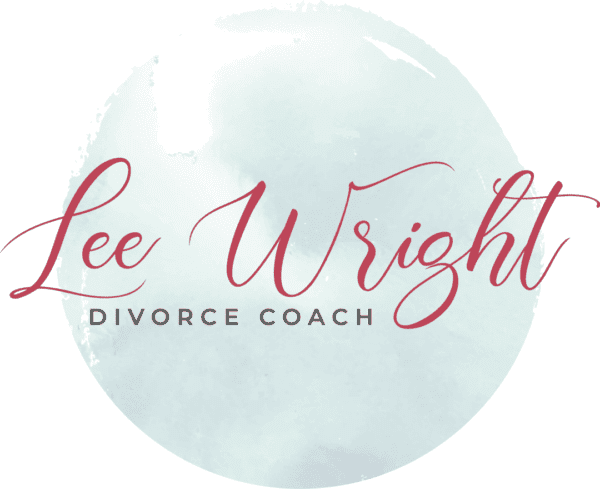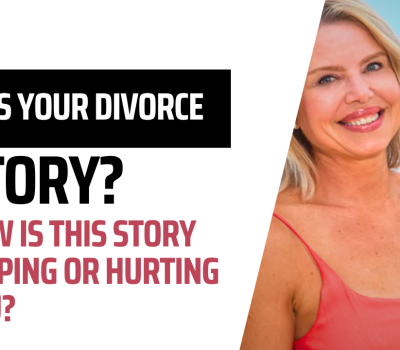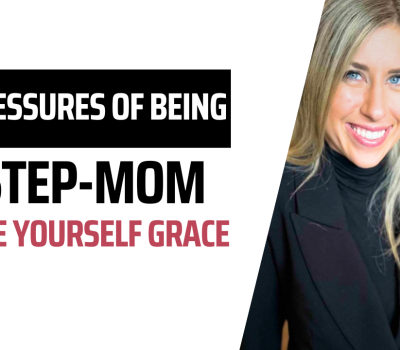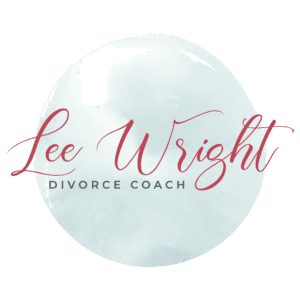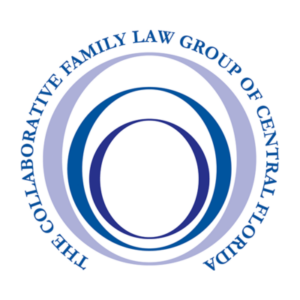hi everybody. Lee here. I am a divorce coach and this is my channel, Seasons Ebb and Flow, and I’m very excited. Today I’m going to be interviewing Matthew Langford, and he is a hypnotherapist and he has been very helpful with me on my journey, healing and growing since my divorce. And so I am going to interview him today to let everybody learn a little bit more about hypnotherapy and how it can help. And I’m going to share a little bit about how it’s been very helpful for me in different ways. So, Matthew, can you tell us a little bit about how you got into hypnotherapy to start out? Yeah, absolutely. And thank you for having me today. So that’s a really good question. So it started about ten years ago. I myself suffered from anxiety, depression, and a lot of just inner conflict and trauma. Came a point in my life when I asked myself, when is enough? When have I suffered enough? Because I was suffering. And so that led me into learning more about spirituality, meditation, and kind of long story short, about ten years ago, kind of in that path, I had a very profound spiritual experience where through this meditation and some energy work, I got a glimpse of what this pure love and awareness was. And in that moment, I fell back to the ground and I felt a lot of this energy. And in that moment, I felt completely one. And I got a glimpse of that, of love, and I was suffering so much. That was such a harsh contrast. So after that, I wanted to dedicate my life to searching for the truth. And so that led me to studying about mind body connection. I got into meditation, I did energy work and started doing that for a while, but in that process, it’s an up and down. And I was still at that point, very lost in my journey. I didn’t know what any of this was. I just knew I wanted the truth and I wanted to stop suffering. So it’s been just a long journey. And then finally, through different choices and things that would come into my path, I had this feeling, I don’t know where, but hypnotherapy came up. And so I started researching hypnotherapy schools. I finally found a school called the Institute of Interpersonal Hypnotherapy, which is one of the only state licensed schools for hypnotherapy and really reputable school, one of the best in the country. And so I went there and it completely transformed my life, because when you go through the training, you go through your own transformation. So all the work that with your clients, you do it on yourself, you experience it first. And through that journey, it’s opened up so many doors. And I’m still healing and I’m still just the human doing the best I can with my resources. And it kind of has led me to this point. I quit my corporate job and I’m doing hypnotherapy full time. I have a practice in Orlando and I’ve never been happier and fulfilled. It’s a profession that gives me great love, great purpose in life. And sometimes after the sessions, I start to get tear eyed. I can’t believe that I’m doing this work. And the model that I work with is every client that comes to see me. They are almost a part of me in that sense where whatever they’re working on, because people are mirrors to us. That’s something in myself that I need to work on as well. And so in the process of allowing them to see their light, even in just the smallest moments, it’s able to release and heal me as well. And so there’s no difference between and I don’t call myself a healer, I’m not a healer. Right. But in that process of helping someone see their light or healing, you also get healed. There’s no difference between the clients and the professional. The only difference is proximity and orientation toward the truth. And if we’re the professional, we might just see a different aspect of truth that they might not be able to see yet. And all we’re doing is turning their head and be like, hey, right over here, that’s your truth, that’s your love. And so that’s kind of why I’m here and what I love to do. Yeah, I love that. And I can totally relate, like, feeling like you’ve found your passion and what you’re meant to be doing and that feeling of helping others. But at the same time, while you’re working with other people and helping them on their healing journey, you are learning and growing and healing from the interactions with them. It’s a beautiful, very uplifting process. And we’re all continuously growing and changing and evolving and we’re all works in progress. And so it’s just growing more and trying new modalities. Like, hypnotherapy really wasn’t on my radar at all. And I don’t know how we got introduced somehow via Facebook, through mutual friends while you were still in training. And on my healing journey, I am willing to try anything at least once. That’s kind of my approach in life too. But when I saw your post, I was like, sure, that sounds interesting, hypnosis. And I also kind of wondered, I don’t even know if I can be hypnotized. And so I would imagine a lot of people have that question. Can you tell us a little bit about hypnosis in general and people who have considered it but think like, oh, I’m not the type who would be able to get hypnotized or what that means? Yeah, that’s a great question. A lot of my clients I see is like, oh, I don’t think I can be hypnotized. But a great teacher always put it like this. Have you ever been in love? Yes. There we go. Then you’ve been hypnotized. Right. In that sense, all hypnosis is a natural but altered state of focused inward attention, right? It’s nothing magical, it’s nothing mystical. However, the magic can happen. The mystical can happen in hypnotherapy sessions. But all it is is where you’re taking your focus. Instead of focusing and critically thinking, you’re turning that focus inward. And you’re not filtering your vocabulary, your thoughts. You’re allowing natural, authentic emotion to come up, right? And anytime you’re crying when the emotion is flowing, the subconscious is open. So any time in your life, if you’ve ever cried, you’re in your subconscious mind. Thank you. Have you ever been watching a TV show and then you’re so consumed in that movie that you’re feeling and living, right?
The formula for hypnosis is a pointed sense of fixation. You have action and you have direct suggestion, all of that. So when you think about watching TV, right, you’re focusing on a point. You’re hearing messages, especially TV commercials, subliminal messages, repeating itself, and then everything else zones out and that’s how you get conscious. And so with hypnosis, there’s a lot of different strategies and techniques through word, how I use my words, a lot of different what words do I say, at what times? Kind of all induce hypnosis. However, this is what I want to say, is that you don’t need formal inductions like what we’ve been through to get into that state. That is just the ritual. It is the ritual. It is building the relationship between professional client to enter into that state. It’s like a culture in the past, right? They had rituals, dancing, drums, things to get into an altering right. That like trance like state where they are not in their more rational mind. They’re connecting with that more subconscious. That’s the more emotional the real you, right? The subconscious is that 90% programming right now we’re talking right? We’re talking from that 10% analytical line. It’s so weird to think that your subconscious is really 90% of what’s driving your behaviors and actions you have for everything. Right now, there’s a program inside of you that knows how to talk, to communicate, to walk. You don’t have to think about walking. You don’t have to think about eating. We have a program for that. But here’s the caveat. We also have programs that negatively create behaviors in our life, right? We have programs of reacting to certain situations, emotions, beliefs, and thoughts. And so this is what I like to say. Subconscious mind. Yes, that’s 90%. But the mind itself is is limited. It’s a reducing valve. And a lot of people think that I am the mind. The mind is the end all, be all. It’s not. It’s just an organ, just like your heart. It’s made to analyze, critique, hold information. But the question is, who is the you prior to the thoughts? And that’s what gets into is that some of the deeper work where we transcend the thoughts, who are you? When there is no thought, when they’re at that still point, and when moment happens, then that’s when the freedom comes. Because you are not living in the conditional patterns of the past, but you are living as the absolute of who you are. Yeah, and it’s interesting because what I found, I assumed that maybe when I went under into Hypnosis, I wouldn’t remember what happened or I wouldn’t be thinking or able to speak or anything like that. And it was not like that at all. It was like I had relaxed into such a deep, calm place and then I didn’t realize that I was going to engage with you while I was under hypnosis. And it felt very relaxed and easy to do that. And I wasn’t evaluating or judging what I was going to say. I was just trying to make sure that I wasn’t consciously trying to answer in the right way because I wanted to get the most out of the session. And I noticed changes after each session. And I think maybe you could tell us a little bit about my first session I did with you. We were talking and it was almost like I was talking to you as one of my parents because we were working through some stuff that related to my childhood that were challenging moments with some of my upbringing. But then the later session was a whole conversation, I think you called it parts with my teenage selves and kind of reimagining the stories that I had about myself and my teenage years talking to that teenager and kind of, I don’t know, in my mind, like, really changing the perspective from a much more negative, maybe depressed view of myself to seeing the beauty that I had to offer even as a teenager. But so maybe you can tell explain the differences. Because what I grasped from those two different sessions is that just like traditional therapy, there are different modalities. Like CBT is that Cognitive Behavioral Therapy versus EMDR, which is that rapid eye movement they’re used for different things to heal different things. And I finally was like, oh, Hypnosis has the same thing. Yeah, that’s a good point. In Hypnosis, it’s just like therapy. So Hypnotherapy takes a lot of modalities, proven modalities, like NLP, neuro Linguistic Programming, talk Therapy, core Transformation Parts Therapy, which are normal aspects of or techniques used in normal therapy. However, we use that in the setting of Hypnosis, in that state of trance. And the reason why we do that is one, again, consciously analytically, we can talk from our conscious mind all we want. However, you won’t heal the problem as rapidly or as quickly until you get to the source of where that coming from. So to answer your question, parts therapy is what we did. And each one of us has what’s called sub personalities.
They’re not multiple personalities but they are aspects of ourselves that have been turned away or disillusioned from the actual truth. And that disillusion, we fell into that disillusion based upon past experiences which created belief systems, which created emotions and then which then created behaviors and then symptoms in our life. And so what happens as we carry around in our life all of these sub personalities created and you have to think about sub personalities as frozen circuits in the brain. An event happened to us and now we’ve frozen in that state of thinking in mind through the perceptual lens of whatever age you were at that time. We are adults, right? But a lot of our time we are being controlled by that past experience, trying to prevent it from happening again. The is just a processing machine and it likes order, it likes to organize all of that. And so with parts we bring out that part of you, right? You and you have a conversation with that part. And each part has its own emotions, beliefs and backstory. And you have to understand that there’s a dualistic nature to us. The you that’s sitting right here as the adult mind knows, some things are very irrational. Why am I thinking that I know better. But then there’s that part of you that just automatically takes over and have one unresourced way of thinking and feeling that hijacked the body. And then we have adult conscious mind who’s able to rationalize and kind of push through it. And so what we do is we have the rational side, talk to the unrational side and ask it hey, why are you here? What’s your story? And most importantly, what job do you play? Because part of us has a job that it’s trying to do and a lot of times that job is trying to protect because it doesn’t like the process of what you’re going through or it doesn’t want you to get to the outcome of where you’re going. It sabotages because it’s afraid, living in fear. In fear love. And so what we do, we find resolution and we tried to shift and transform that unresourced state we raised up, right? So now it’s looking at that old way of being in a new perceptual lens and then integrate the two where now you don’t have this part that wants one thing and this part once the other thing. Now we align them and both of them want the same goal. And through that process, love occurs. And I’ll say this a lot in my teaching and profession, but the core of all healing is love and forgiveness. And a lot of times love and forgiveness has to be with yourself because we are conflicting. And then love and forgive yourself. You heal and then others around you will have that same permission, you start to change the environment around you. Yes. It was that last session with me conversing with my teenage self. The reason I decided I wanted to do a session like that was because observing my kids in their teenage years, I had all these positive perceptions of them and I kept comparing them to my teenage self who I still viewed so negatively. And I knew there was something that needed that story that was deep rutted in there, was not helping me. And in the beginning of that session, you had me kind of imagine my teenage self and name it. And then that’s who I talked to for the first half of the session. And then by the end, I created an image of the more positive side that we discussed in the second half and renamed my teenage self something new and then integrated that new picture and named throughout my life while I was under. And I can’t tell you how much it just changed my whole emotional feelings about my teenage years and myself as a teenager and recognizing that everything I felt is what probably most normal teenagers feel. But up until that time, I thought mine was different and I just knew it needed to be rewritten inside my head in some way. And it worked. Like, I definitely it’s changed a lot about how I see myself and realize that I’m no different to my kids and what they’re going through. It helps me just be empathetic and not stop thinking that, like, my experience was so different to other people’s. Which when you think that, it makes you feel separate or outside the norm. And if you can help yourself understand that you’re not different, or the challenges of feeling outside the norm makes you push yourself outside the norm more and more and reaffirms that incorrect or viewed perspective. So doing this kind of work can help change that subconscious belief so that in your day to day life, you’re not carrying that skewed perspective about yourself. You said it perfectly. Exactly. All of that dialogue that we have in the part session, those are subconscious programs running into your mind.
They’re open. And it’s like the analogy of having a lot of open apps on your phone. They’re just draining your battery. Right. So we close those apps. Right. You start to lose that energy when we close those apps, then you have more available energy to heal. Yeah. Love to feel. And a lot of people sometimes are not willing to let go of that old story. And Christopher once told me, what are you willing to sacrifice for your freedom? And a lot of people are unwilling to let go of that story because they’re so identified with it, because they believe that that story, I need to hold on to that because that is who I am. What’s great about this work and coaching work that you do is that there’s nothing that anybody can obtain that they don’t already have. The self improvement, the spirituality is not about improving your egoic structure or conditional structure. It’s about letting go of the egoic agenda altogether. And when we do that right, there’s no duality of this is good, this is bad for me because nothing outside of us can change how we feel on the inside. Until we get to that point, then we’re still stuck in illusion. So the work that we do is that nothing outside of us should change the way how we feel on the inside because you are the absolute of how you feel. And again, it’s not about obtaining anything. It’s about dropping away all of the distortions, the illusions that our past has created, dropping that away. And just as is in the moment. Yes. And when I’m working with my clients, sometimes right during a divorce or post divorce, people have this story about why the marriage fell apart and sometimes can find themselves in a little bit of that victim mentality of looking at the other and the other person’s why it didn’t work or what they did to ruin the marriage. And what I learned through my process and what I try and help my clients is as much as, yes, obviously the other person brought things to the marriage that didn’t help. It takes two to tango. And for you now to move forward, it’s to look at yourself and what you brought into that relationship that might not have been healthy because none of us are perfect people. And that dynamic, no matter what. If you don’t do some of that deeper work on yourself, you’re going to keep repeating some of those patterns until you are able to create the awareness of what you’re bringing from your past. That isn’t helping you, and unpacking that even when it’s uncomfortable or not pretty or things that honestly, there were so many things that I was completely unaware of that I realized now I am in such a better place to be a better partner in a relationship going forward. But it’s taken quite a few years of understanding more and more about my own areas from my own insecurities and different wounds that happened so early on that some of it’s like I’m not even aware of the memories. But the behaviors and the reactions and that reptilian brain that jumps and reacts, that is part of that process. So actually that is a question because I’ve done some other things with nervous system awareness like trauma, tension release exercise and that talks so much about being able to identify when that reptilian brain is in reactive mode and your frontal cortex hasn’t come online. But so when you’re in hypnosis, is there a connection to some of those immediate reptilian responses? Or I guess by healing some of the pain or wounds, that reptilian brain that feels unsafe and reacts might become calmed? Yeah, absolutely. That’s a good question and good point. So the model that I work with is that everything is psychosomatic, right? So everything that we experience in the mind, we also experience in the body Nervous system.
Every thought that you think creates a chemical reaction in the body, right? Good thoughts, it creates happy chemicals, bad thoughts, it creates chemicals equal to that emotion. And what happens is that because of the choices that we make and thoughts and beliefs, our body gets on the cycle of just feeling these emotions and chemicals every day. And after a while we start to believe that that’s just who we are. Habit in a pattern. We’re like, oh, that’s just who I am. And with hypnotherapy is breaking that cycle because there’s a loop that happens where we think, we feel and then that feeling creates thoughts equal to that emotion. So if you think sad feelings, your body will produce sad chemicals. And then when our mind is aware that we are feeling something here, it starts to react and create thoughts equal to what we’re feeling. So when we feel sad, start to produce sad thoughts, self defeating thoughts, and then we get into cycle feeling and thinking, thinking feeling. And with therapy it’s breaking that cycle where we’re putting a stick in that rung, stopping the wheel to go and then redesigning that wheel in a sense. And then when you take it out, then it can run properly how it’s supposed to run. So yeah, it does affect our nervous system. Absolutely. Those emotions. Yeah. I read a book called Whole Again and another book called The Body Keeps the Score and both of those really enlightened me too. I’m a yoga instructor, so of course I believe in my body and I think about that a lot. I love physical movement but I really just didn’t realize the extent to the connection of our thinking affects the physical body in so many ways and just the ramifications of unhealthy thoughts on our body. And like Gabor, Matte talks a lot about disease stemming from a lot of wounds and trauma that hasn’t been addressed. Yeah. If we understood as a people how thought affects our reality, we would be so careful with our thoughts in mind and even in hypnosis or hypnotherapy. I’ve seen people with chronic headaches for years or gone right. Or people with tremors gone right. Yeah, absolutely. And that’s part of medical or clinical hypnotherapy is being able to work on those clinical symptoms. But the reason I’m saying all of this is that there’s such a correlation and connection between how we think and how our body, our health. It doesn’t matter. You can be vegan, all, raw diet, you can do all of that. But when you’re thinking and believing in that energy of those negative emotions, you’re down regulating your genes and your body and you’re going straight down the path of disease. So for me, yes, diet and all of that is important. However, we have to feed our mind. We have to take care of that first. Because at the end of the day, it doesn’t matter how healthy you eat, the mind is what gives the signal to the cells to either up regulate or down regulate. And so if we’re feeding our cells information that the environment is abundant, that it’s good, that it’s happy, that it’s love, then it’s telling our body that you’re in a safe place, you can thrive, energy you can heal. When we are thinking fear, worry, guilt, we’re telling our body to prepare, something bad going to happen. And guess what? All of that energy in the fight or flight is going toward either fight or flight. It’s not going toward our organs. We don’t have any. To be creative, to love. Have you ever felt really creative and imaginative when you were in a state of fear? No. It’s the opposite of that. Only when you’re relaxed in love, you can be creative, you can enjoy life, enjoy your children, relationships, all of that. Absolutely. Yeah. And working to stay in that positive state of peace and connection and love and gratitude, it’s a process of trying to stay in that every day and doing things like hypnosis where you are, hypnotherapy where your day to day self talk is so important. But then connecting with some of those things that you aren’t even aware is impacting your perception or your view of yourself and your reality. Working with both is just reprogramming can make a lot of impact on just the long term trajectory of your emotional state and physical state. Yes. And this is the caveat and something that you said brought at this point of the positive emotions, all of that. The caveat is, and the question that I ask myself is will I be the same person even without those positive emotions? Do I need those positive emotions externally to who I am? And that’s the fine print, is where we do this work to again elevate and improve and all of that. However, we need to hold on to that so loosely because if we use that still to create a sense of identity, right?
When we lose that, when we lose attachment, then we’re back into fear. And so the beauty of this work is that regardless if you are having the worst day or the best day, that it is the same. Because even in the worst day, that situation doesn’t change the truth of who you are. Right. The positive things, when positive things happen to you, that doesn’t change the truth of who you are. It doesn’t or it doesn’t take away anything. Right? Enjoy that. Be like oh, that’s a very good thing. I really enjoyed that. But when we add that experience as an addition to who we are, then when we lose it, then we’re back into fear. And so the beautiful thing is that we are the middle of the spiral, right, of the hurricane, the odd storm, it doesn’t matter what because you’re always in life going to have good days, bad days, wins and losses. Yeah. And I’m sure as a coach yourself, to remind clients that as well, like in divorce, hey, things might not be going smooth. However, that doesn’t have to affect you. Yes, exactly. It’s trying to find that ability to stay in a peaceful or a state that isn’t so reactive so that you can move forward. And the other thing, like, I was just thinking even about myself, like, let’s say I attempt something with my business, starting an event or something, and I don’t have a great turnout. Like, my old way of thinking would have been like, I fail, this sucks. What am I even doing? Why do I think I can do this? And literally almost talk myself out of moving forward? And through some of this work, I have learned to recognize that failure or things not working out the way you want are a part of life. And learning how to integrate that into who you are without knocking yourself down five levels is mind control. And sometimes it’s like realizing that some of those fears are from things that happen, like when you were six years old or something, and that automatic fear of, like, okay, just don’t even attempt. Yeah. Very interesting. So I’ve always done the sessions with you in person. Do you do only in person or virtual? What are the different options? Yeah. So I do both. So I do virtual sessions as well as in person. And a lot of people think, well, it’s probably not as effective virtually, but the healing, the techniques, everything is still the same. I do believe that there is a sense of connection and intimacy in that sense when you are in person. Right. There’s an unfortunate lead. Yeah. However, people think you need to be next to someone to exchange energy. But only the body is based in the time of space and time. Right. Because it moves through space and time. It has mass, but energy itself, in that sense, in the energy realm or quantum field, there is no space or time. It’s infinite. So it doesn’t matter where you are in the world, you can still heal. I don’t even like the word of healing. You’re just returning back to your natural state. And again, you already have that. All you’re doing is you have to remember. Again, you forgot you’re disabled right now, and you just have to remember. And so anywhere in the world, virtual in person really depends on what people want. And most of my clients prefer in person, but I do have that option as well, because I’m sure you as a coach, do some virtual as well. So it definitely adds more flexibility to the people you can see, because with the type of work I do, and I’m sure you do, we. Don’t just want to reach Orlando people or local people. We want to offer to the world, go to the four corners and preach the gospel. Right? Exactly. That sense. So that’s what we’re here to do. And people who are searching for that, they’ll find it. And one great teacher once told me, you shouldn’t seek illumination unless you seek it. Like a man whose hair is on fire seeks a pond. Right? And so this type of work, it’s not something that you just go in, put your foot in. No, you have to seek it like your life depends on it, because your life does depend on it. Every day when we live in illusion, we’re continuing the cycle of suffering.
Again, it goes back to that question, what are we willing to sacrifice for our freedom? A lot of people are willing to let go of the bad things, but are they also willing to let go of the good things? Right. In that sense of having the equanimity with all, and not a lot of people are willing or wanting to do that, but those who are that truth will find that truth. Yeah, absolutely. I think some of the risks when you’re going through the divorce is the pain and the discomfort is so intense at times that you want to just numb, whether it’s with alcohol or food or distractions working too much. And really disconnecting from your body and your emotions and making yourself sit in it and go through the pain and feel it is so important in order to be able to heal rather than just stuffing it all down. Which then is what eventually can create such unhealth in our bodies if we aren’t connected to our bodies and our emotions. And what I have kind of noticed for myself as I’ve gone through the process is I feel like periodically I go really deep and intense in learning and trying new things and exploring myself. And then I hit like, a point where I’m like, okay, I need to breathe and have some fun and pace myself because it’s intense and it’s a lot. But at the same time, the reward is really great because if you numb or you’re disconnected to your emotions, you’re not feeling the pain, which is what we want to avoid, but you also aren’t feeling those positive feelings because you’re numbing everything to this very kind of, like, simple baseline. And so, yeah, going into those negative emotions and feeling them and experiencing them sucks, but you then get to experience the upside as well. It’s really a beautiful journey of getting to know yourself and coming back to that center that you talked about, that real you, and peeling away the illusions that you’ve created from all the stories that you’ve told yourself over and over or that sit in your subconscious tied to events that happened so long ago. And, yeah, we’re just kind of, like, rewiring it all a little bit. Yeah. I love that you said that. In that pursuit of truth, we concentrate and it’s very intense. But then there are also times where you have to enjoy and there’s nothing wrong. And a lot of people think in the pursuit of the spirituality or this truth, that they’re going to lose a sense of identity. Right. Passive spiritualist, where everything is home and nice. Right. Contrary. When you know that you are living in an illusion, you can enjoy the illusion so much more freer without the attachment to it. And so that’s the beauty of it, that you’re not they have this saying where before enlightenment, chopped wood carries water. After enlightenment, chopped wood carry water. It’s a Zen saying, kind of meaning nothing changes right. After this truth or after you go into this healing, nothing has to change in the outside world, it can remain the same. The only thing that doesn’t change is you. And so that’s the beautiful part, right? Absolutely. I love that. So true. So if people want to find out more about what you do and just hypnotherapy in general, where can they find you? Online. Yeah, so I have an Instagram where I do most of my posts. Matthew Langford, Hypnotherapy I also have a Facebook page, matthew Langford Hypnosis currently, I do have a website, but it’s being reworked right now, kind of redesigned, and so you can’t access that however you can find me on social media. That sounds good. I’ll also put links to your social media in the description of the video. Perfect. This was awesome. Thank you so much. And I’m really excited for people who didn’t know anything about hypnotherapy to have just a sliver of information about it at this point. And if you’re curious or want to learn more, check out Matthew’s posts, reach out to him. I highly recommend hypnotherapy. For me, it was really an enjoyable process itself. And also I found there were some really amazing benefits outside in living my life after the session. Thank you. All right, well, we will do this again down the road and and I will see you soon. And thank you for the work that you do as well with your clients and coaching. Thank you. Yeah, I’m enjoying it. All right, bye.
